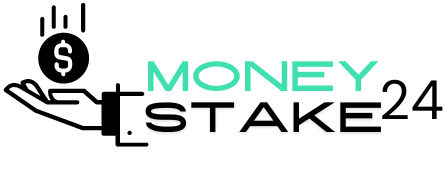How to Start Investing with Little to No Money: A Strategic Guide
When most people consider starting their investment journey with limited funds, they often hear the advice to use “OPM” or Other People’s Money. Leveraging other people’s money can be one of the riskiest strategies. Especially for beginners. This approach might not be ideal. Discover alternative methods to begin investing even with minimal resources.
The Risk of Using Other People’s Money
I embarked on real estate investment journey at the age of 19. Following the conventional wisdom of investment books I approached a bank for $25,000 loan. Thankfully, the bank denied my request. This turned out to be a blessing. Most new investors think about putting significant amounts like $10,000 into assets such as stocks or real estate. They aim to generate returns. But what if you don’t have $10000? You can start with smaller amounts, $1000, $100, $10, or even $1.
The common response to having limited funds is to borrow money. Either from a bank or through margin accounts from stock brokerages. The idea is to invest this borrowed money repay it with a small interest and keep the profits. While this can yield great returns when successful. It also magnifies the risk. If the investment fails, you lose your money. You also owe the borrowed amount plus interest. This scenario is especially perilous for novices , who are more prone to making mistakes. Investing inherently involves risk. Combining this with the obligation to repay borrowed funds can lead to financial disaster.
**Investing Time When You Lack Money**
Investing requires resources. Either money or time. While money is essential for buying assets like stocks real estate and businesses to grow wealth. Time can be invested to generate money initially. Here, we focus on how you can invest your time to start building your financial foundation.
Six Investments You Can Make Today
- Invest in Learning
- Books and Online Resources: Start by expanding your knowledge. If buying books is beyond your budget visit the local library. Use apps like Libby, which provide access to free audiobooks. You can also utilize free educational content on platforms like YouTube and podcasts. Key subjects to focus on include money management. Investing mindset and self-development career growth, business development and negotiation skills also are important. Reading five books in each of these categories can transform your skills. Your earning potential within a year will notably increase.
- Invest in Paying Off Debt
- Mortgage Payments: If you own home with mortgage you can save significantly on interest by paying bi-weekly instead of monthly. This method reduces the total interest paid. It also shortens the loan term.
- Credit Card Debt: Aggressively pay down credit card debt. Consider transferring balances to 0% APR cards. This approach helps you avoid high interest rates.
- Avoid the “Stupid Tax”
- Bad Financial Decisions: The “stupid tax” refers to the cost of poor financial decisions. Examples include late fees unnecessary purchases and gambling. Avoiding these can save substantial money.
- Strategic Budgeting: Make informed decisions. Avoid fees that arise from late payments and overdrafts.
- Build Strategic Partnerships
- Service-based Businesses: If you are starting a business with limited funds, you will need to look for strategic partnerships. For example, cleaning service could partner with property management companies. Alternatively, a moving service could target college students who need affordable help. Differentiating yourself and targeting specific markets can set you apart. These strategies can create steady income streams.
- Network with Successful Individuals
- Conferences and Volunteering: Place yourself in environments where you can learn from and connect with successful people. If attending conferences is too expensive consider volunteering to gain free or discounted access. The connections. The knowledge gained from these events can be invaluable.
- Invest in Physical, Mental, and Spiritual Health
- Physical Health: Maintaining your health does not require expensive gym memberships. Simple activities like walking. Running and bodyweight exercises can keep you fit and energized.
- Mental Health: Consume positive and educational content. This builds a productive mindset. Use resources like YouTube and podcasts to stay motivated and informed.
- Spiritual Health: Reflect on your purpose and values. Journaling and mindfulness practices can help align actions with your goals. This leads to a more fulfilling life.
Turning Active Income into Passive Income
Once you’ve established stable source of income it’s crucial to convert it into passive income. This involves investing in assets that generate returns with minimal active involvement. The ultimate goal is to grow your wealth. And ensure you lead a balanced, happy and fulfilling life. Financial success should complement your overall well-being. This includes physical mental and spiritual health.
# Conclusion
Starting your investment journey with little to no money requires strategic thinking. And resourcefulness. By investing your time in learning, managing debt avoiding financial pitfalls, building strategic partnerships and networking you can create a solid foundation for future financial growth. Remember, the key is to start small stay informed and make smart decisions that align with your long-term goals.

